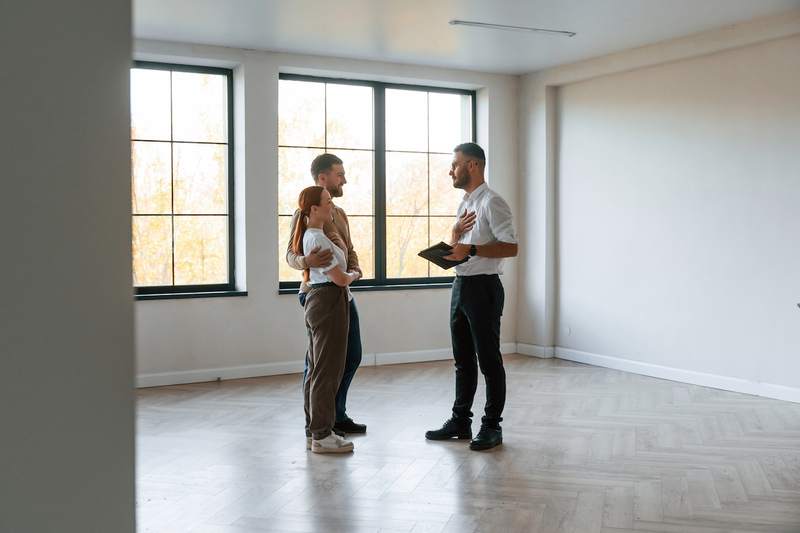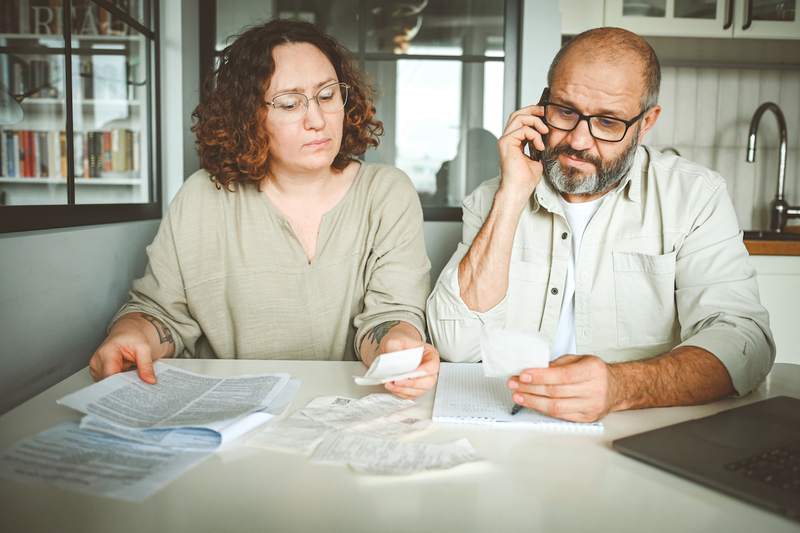You’ve probably heard that a home is the most valuable asset most people own. But if you’re currently making monthly payments, and the day when you’ll finally pay off your mortgage is years in the future, you may wonder exactly what that means, and how it’s of benefit to you now.
The answer lies in the idea of home equity, which usually is expressed as a percentage or a dollar amount that represents your ownership stake in your home. Though home equity isn’t easy to access, it’s real, and increasing your equity is a rewarding financial goal to work toward.
Here’s what you need to know about what is home equity and how it works:
- Defining Home Equity
- Building Home Equity
- Borrowing Your Home Equity
- Common Uses for Home Equity
- Pros and Cons of Borrowing Home Equity
- Home Equity FAQ
- The Bottom Line on Home Equity
Defining Home Equity
What is equity in a home? Put simply, home equity is the value of your property minus the balance of any loans secured against it. For many people, it’s simply the home’s value minus the mortgage balance. But if you have a home equity loan or home equity line of credit, you also must subtract the balances of those loans from the home’s value.
Positive home equity means that your home is worth more than the debt secured by it. Negative home equity means you owe more than your home is worth. Building equity is generally viewed as a good thing, and negative equity as bad.
How to calculate your home equity
To calculate your home equity, take your home’s value and subtract your mortgage balance, home equity loan balance, HELOC balance, and the balance of any other debts secured by the home.
For example, if your home is worth $250,000, and you have a mortgage balance of $200,000 and no home equity loan or HELOC, then your home equity is $250,000 minus $200,000, which equals $50,000.
The tricky part is knowing what your home is worth. You can get a general idea from the sales prices of comparable homes in your area, or from online real estate trackers. But the only way to know for sure is to apply with a mortgage lender, which will order an appraisal of your property.
Building Home Equity
How does equity work? Homeowners build equity as they pay down the balance on their mortgage, and as their home increases in value.
Pay down your mortgage
Each mortgage payment you send to your lender covers accrued interest and a portion of the principal. Over time, these payments chip away at your loan balance.
The process of building equity on an amortized payment schedule is slow, especially at first. In the early years of your mortgage, most of your payment goes toward interest, with the smaller share applied to your principal. As time passes, more of your payment goes toward principal, and you’ll build equity more quickly.
As your loan’s balance goes down, your equity goes up. At the end of your loan’s term, typically 15 or 30 years, you’ll have paid down your loan’s balance to zero. At that point, you have 100% equity in your home and own it in full.
Make extra payments
To pay down your mortgage and build equity more quickly, you could make extra payments or pay more than the minimum amount. The extra money is applied to your principal, reducing your loan balance and building your equity more quickly.
One common and relatively easy way to do this is by making biweekly payments that are half the monthly payment. With 52 weeks in the year, you’ll make 26 payments, which is equivalent to 13 monthly payments each year — one extra. That can help you repay a 30-year mortgage four to five years ahead of schedule.
Increase your home’s value
Your home’s value is the other important factor in determining your home equity. When your home’s value rises, your equity increases. The longer you stay in your home, the more likely your home’s value will increase.
This is a less predictable way to build equity, as the home values vary depending on market conditions. Some houses will increase in value more rapidly than others, while others either hold steady or possibly lose value over time.
Home improvements
One way to boost your property’s value is through home improvements that make it more appealing or functional. These can be small do-it-yourself projects or major projects that involve hiring a team of contractors.
“The fastest way to build home equity is to buy a house at a discount, and the most cost-feasible way to do this is to purchase a house that needs some work and then renovate it to increase its value,” says Jordan Fulmer, owner of Momentum Property Solutions, a real estate investment firm in Huntsville, Alabama. “If you purchase a home for $150,000 and increase its value to $250,000 with renovations, you’ll immediately gain $100,000 in equity.”
Keep in mind that what you spend on improvements rarely translates directly into a matching increase in equity. Homeowners can expect anywhere from a 45% to 93% return on investment in the value of their home for major improvements.
Market fluctuations
The real estate market fluctuates based on factors such as interest rates, the economy, and local conditions. That means you can expect the value of your home to change over time, even if you make no modifications to the property beyond regular maintenance.
If your home’s value increases, that will help boost your equity. It’s also possible your home could decrease in value — especially in the short term — but homes have generally increased in value over the long term. The national average for home appreciation is 3% a year.
What if your home loses value?
While the average home gains value each year, the real estate market is prone to fluctuations in prices. For example, median home sale prices in the United States fell during the Great Recession from $238,000 in the fourth quarter of 2007 to $208,400 in the first quarter of 2009.
If your home loses value, that will decrease your home equity. In some cases, you could owe more than your house is worth, which is called negative equity. If you try to sell a home with negative equity, you won’t be able to get enough for it to repay your mortgage, and you would have to pay that portion of the mortgage you still owe. Negative equity also makes refinancing all but impossible.
Borrowing Your Home Equity
Now that you have a home equity definition, you may be wondering what you can do with it. One of the drawbacks of home equity is that it’s tied up in your home, and it can only be accessed by selling your home or by taking out a home equity loan, HELOC, cash-out refinance, or reverse mortgage.
If you like your home, you probably don’t want to sell it just to access its value. Even if you do want to sell, homes are illiquid, and selling them takes time and incurs fees.
If you want to know how to use home equity, the most common strategy is to borrow against the value of your home.
Home equity line of credit
A HELOC lets you borrow against the value of your home, and works much like a credit card, giving you the option to draw from the line of credit on an as-needed basis. You typically only pay interest on the outstanding balance. Most HELOCs allow you to take out cash during a draw period that usually lasts five to 10 years, after which you make payments over a repayment term that’s generally 10 to 20 years.
For example, if you have a home worth $300,000 and a mortgage balance of $150,000, you could get a HELOC with a credit limit of $75,000, letting you borrow up to $75,000. You can draw from that line of credit when you need to.
Home equity loan
A home equity loan allows you to receive a lump sum of cash from your lender to pay for a larger expense. The amount you can borrow is based on your home equity. This loan is in addition to your mortgage, and will have its own interest rate. Home equity loans typically have a repayment schedule of 10 to 15 years.
These loans can be useful because you’re typically able to borrow large amounts of money and secure lower rates than with personal loans or credit cards.
Using the above example, you might be able to get a lump-sum loan of $75,000 to fund a major project.
Cash-out refinance
Cash-out refinancing lets you refinance your existing mortgage while also receiving a lump sum of cash.
Imagine you own a home worth $300,000 and have a $150,000 mortgage balance. You could refinance to a new mortgage for $200,000 and receive $50,000 in cash, minus your refinance closing costs. This gives you money to spend on whatever you’d like, and you would repay the loan as part of a new mortgage with updated rates and terms.
Reverse mortgage
Reverse mortgages are designed for older homeowners who want to convert home equity into cash without having to sell or move out. These loans can be complicated, but if you have sufficient equity, they can be a valuable source of retirement income.
Common Uses for Home Equity
Home equity is a popular source of funding for many different purposes.
Make home improvements
Home equity loans let you borrow large amounts at a low cost, making them a popular option for people who want to make home improvements. This is especially true for more expensive updates to a home, such as remodeling a kitchen or building an addition.
One good thing to know is that there can be some tax benefits to using a home equity loan to improve your home, making the loan even cheaper.
Consolidate high-interest debts
Because home equity loans and lines of credit are secured by your home, they’re low-risk loans for lenders. That means you can get them at low interest rates. Many people choose to consolidate high-interest debts using their home equity both to save money and to turn multiple monthly payments into a single payment that’s easier to manage.
Pay medical bills
If you have an unexpected medical expense, a home equity loan could be a low-cost way to borrow money to cover the cost.
Pay education expenses
Everyone knows that college is expensive, so some people tap into their home equity to help cover the cost. These loans usually will be cheaper than student loans, but lack protections afforded to standard student loans, such as income-based repayment.
Boost retirement savings
Some homeowners use their home equity as a form of retirement savings, taking advantage of a reverse mortgage to turn their equity into income or selling their home to buy a smaller property when they retire. Other strategies include taking a cash-out refinance and investing the money in your retirement funds.
Profit when you sell your home
Your home equity is the difference between the value of your property and the debt against it. When you sell your home, you’ll have to pay off any outstanding debt secured by the home — but whatever is left over is profit.
Buy a new home
If you’re trying to move to a new home, you’ll likely want to sell your current one. You can use the equity you’ve built to help with the purchase of a new home, either with a home equity loan or using the profit from selling your current home.
If you’re buying a second home, you could also consider using a home equity loan to help with the down payment.
Pros and Cons of Borrowing Home Equity
There are benefits and drawbacks to borrowing against your home equity.
One of the primary benefits of borrowing against home equity is the relatively low cost. Home equity loans and lines of credit typically have lower interest rates than credit cards and personal loans, making them an affordable way to borrow.
They also tend to let you borrow larger amounts. “Because your home is typically one of your most valuable assets, tapping into your home equity can help you finance major expenses,” says Kevin Bazazzadeh, owner of the Brilliant Day Homes, a real estate investment company in Houston.
However, the obvious drawback is that you must own a home and have positive equity to be eligible. Not everyone owns a home or has a lot of equity. Plus, refinancing can extend the term of your new debt to the length of your mortgage, which may mean paying more interest.
Also, keep in mind that borrowing against your home equity means using your home as collateral for the loan. If you stop making payments, your home can be at risk.
“Failure to keep up with the repayments may mean foreclosure on your home,” Bazazzadeh says.
Home Equity FAQ
Home equity can be complicated, so here are answers to some frequently asked questions.
If you have positive equity, you should be able to get that equity in cash when you sell your home. However, you also have to account for closing costs, real estate agent or Realtor commissions, and other fees, which can reduce the amount of cash you’ll receive.
Yes, some lenders will charge closing costs, such as origination fees or appraisal fees, when you get a home equity loan or HELOC. You can expect to pay 2% to 5% of the loan amount.
The Bottom Line on Home Equity
What is equity in a house? Equity is a measure of how much of your home you actually own. Home equity is a bit of an abstract idea, but it’s one that can be put to concrete uses, even if you don’t fully own your home. You have options for turning it into cash you can use, with a cash-out refinance, home equity loan, HELOC, or reverse mortgage. That makes home equity a flexible tool for managing your overall finances, and achieving your financial goals.
- Remodeling Magazine
- Freddie Mac
- Federal Reserve Bank of St. Louis






